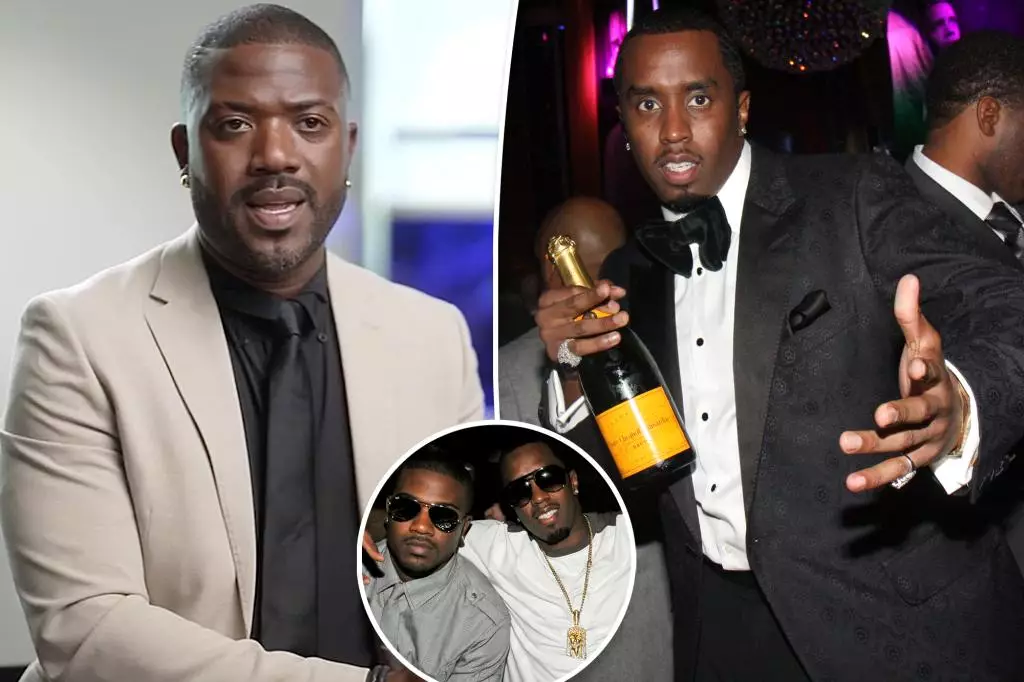In a striking revelation during an interview with TMZ’s Harvey Levin, Ray J opened up about the hidden machinations often shrouded in celebrity culture. The singer, known for both his music career and reality television appearances, voiced concerns regarding the prevalence of silence bought through financial means in Hollywood. His remarks come in the wake of Sean “Diddy” Combs’ mounting legal troubles, which include serious allegations such as sex trafficking and racketeering.
Ray J’s comments, particularly about A-list celebrities allegedly engaging in what he termed “catch-and-kill” tactics to suppress unfavorable stories, delve into a deeply controversial subject that raises questions about accountability in the entertainment industry. By claiming that certain individuals might successfully evade the repercussions of their past actions due to financial arrangements, he exposes a troubling reality of how some navigate their personal scandals.
Trust and Transparency
Ray J posits that he has become a confidant to these unnamed stars, who feel compelled to share their experiences related to Combs’ inner circle. He articulated that many high-profile figures reach out to share their encounters, likely due to a blend of fear and trust—fear of repercussions from speaking out and trust in Ray J as someone who will handle their revelations with discretion. This dynamic of secrecy and trust points to a broader culture within the entertainment sphere where silence often comes at a price, perpetuated by the powerful figures who wish to maintain their public images.
In his conversation with Levin, Ray J acknowledged his hesitance to disclose specific stories, indicating that there are boundaries to what he is willing to divulge. The remark highlights an internal struggle many face: the desire to shed light on injustices balanced against the potential fallout from doing so. Ray J’s ultimate retreat into silence reinforces the very culture of fear that permeates not only Hollywood but many aspects of life where power dynamics exist.
The Implications of “Catch-and-Kill” Culture
The concept of “catch-and-kill”—where potential damaging stories are bought out or suppressed—has far-reaching implications. It raises ethical questions about victimhood, accountability, and the oft-buried truths that lie behind celebrity facades. Ray J’s assertions suggest a system where those in power can manipulate narratives to suit their needs, thereby affecting public perception and, ultimately, justice for victims.
In addition, attorney Tony Buzbee’s promise to expose the “enablers” surrounding Diddy alludes to a network of complicity that fosters these kinds of abusive behaviors. As allegations against Combs mount, the notion that numerous high-profile figures might have knowledge of his actions underscores a pressing need for accountability. When alleged acts of misconduct are often met with silence, it raises a moral dilemma: should one remain complicit for the sake of personal safety, or should they take the risk to confront the troubling realities of such power dynamics?
The unfolding drama of Diddy’s legal issues, compounded by the revelations shared by Ray J, shines a spotlight on the dark underbelly of celebrity culture where power, wealth, and silence often intersect. As the music mogul battles serious legal claims and faces the possibility of public and legal scrutiny, the culture that enables this behavior appears to be under renewed examination.
Notably, the altercation involving Ray J and Diddy’s sons reflects the personal ramifications of these widespread cultural narratives. The tension at public events and the entanglements of celebrity families illustrate how far-reaching the impact of these allegations can extend beyond the individual to their connections and personal lives.
As society continues to grapple with issues of accountability, it is crucial for voices like Ray J’s to be heard. His admissions could spark a wider conversation about transparency and the need for individuals within the entertainment industry to confront their past actions openly. The intersection of fame, power, and morality calls for an honest reflection on the systems in place, urging the public to reconsider their engagement with a culture that often prioritizes secrecy over truth.
Ray J’s interview acts as a catalyst for dialogue around the often-ignored realities of the entertainment world. It lays bare the complex dynamics at play, urging a reconsideration of how stories are told—or silenced—within the public sphere. In navigating these discussions, it is essential for victims and allies alike to bring these narratives to the forefront, ensuring accountability and promoting a culture where truth prevails over silence.
